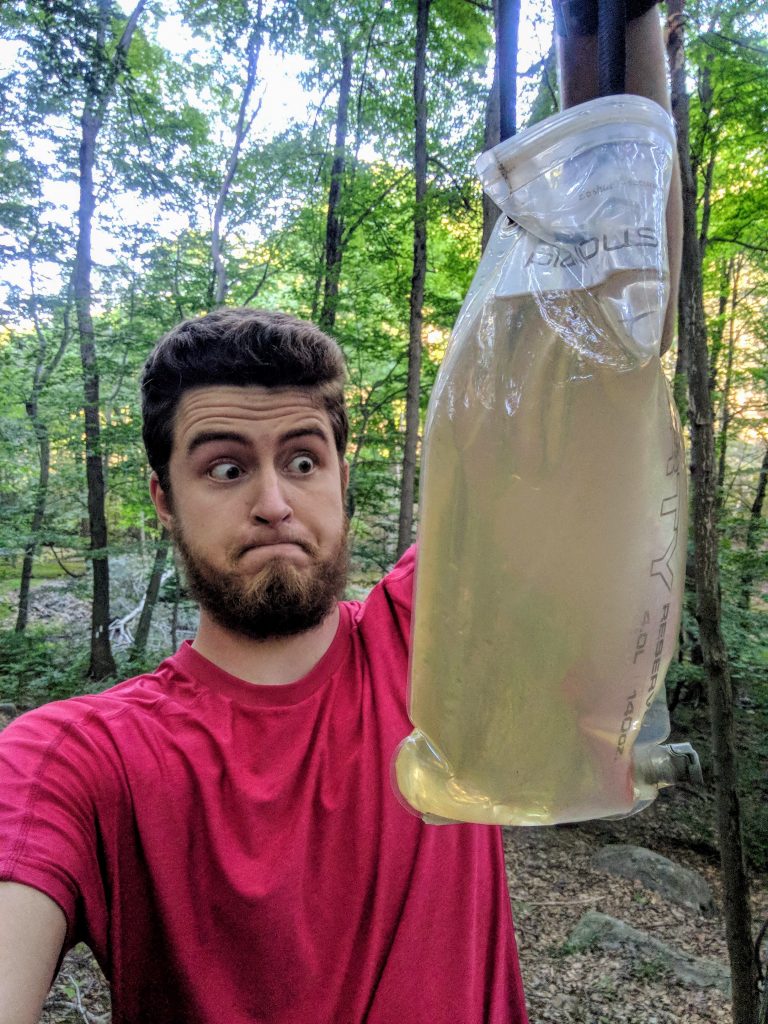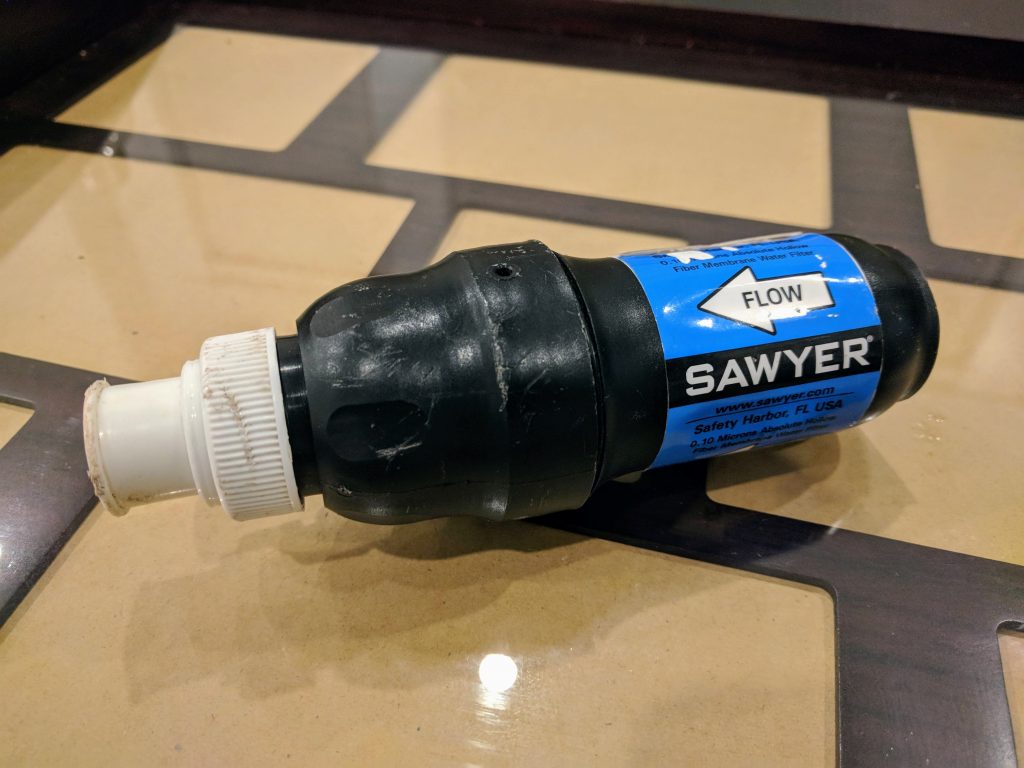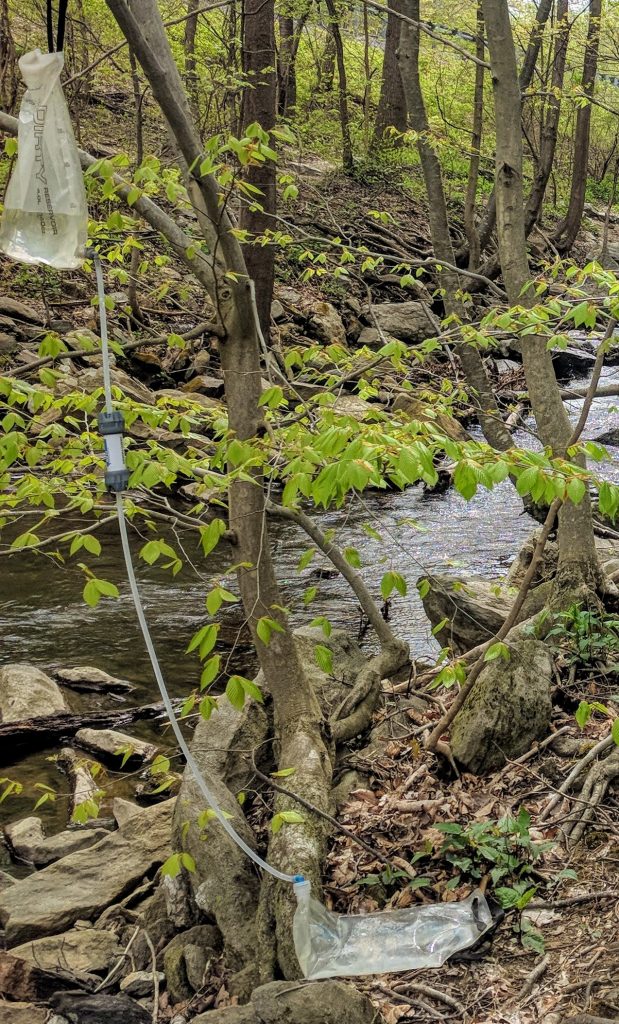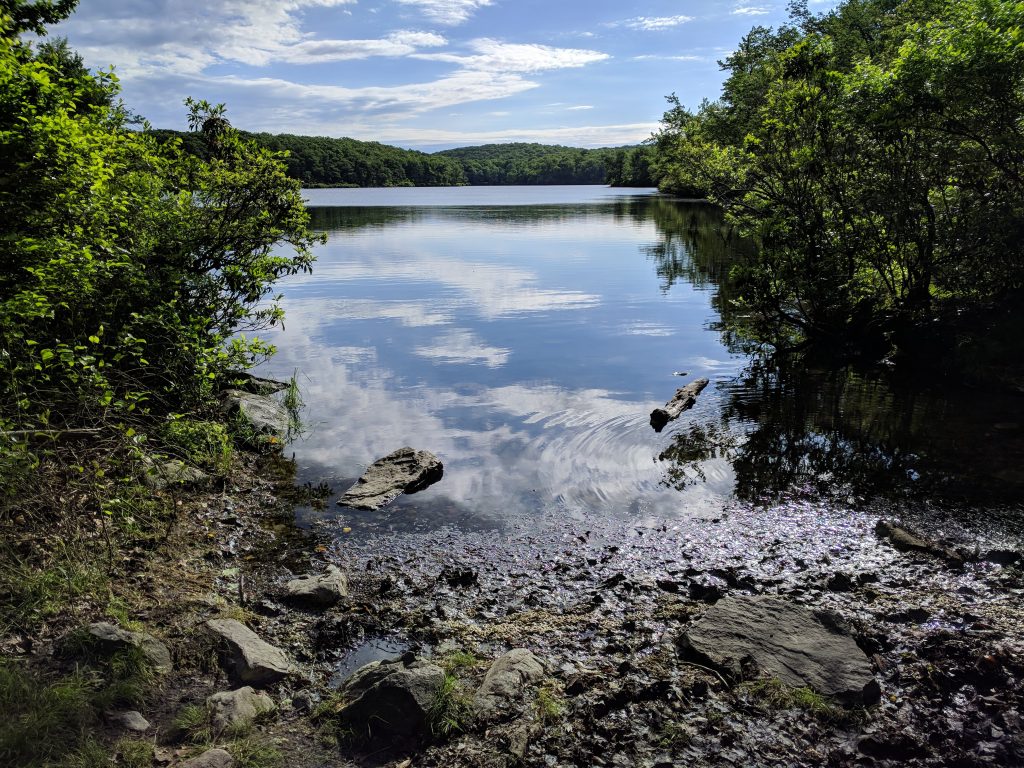Filtering your water on Trail

When you’re out in the wild and need fresh water to drink. Drinking water from streams directly is a huge no no, as the water can contain parasites and diseases. In my opinion, mechanical filtration is the best to protect yourself from becoming ill from water borne illnesses when on trail.
My choices for water filtration:
On the Trail: Sawyer Squeeze Water Filter and a 1 Liter Smart Water Bottle
The sawyer is my go-to water filter, its so small and screws right onto a water bottle. It has great flow and using it in conjunction with a 1 liter smart water bottle, I can fill up a 2.5 liter water bladder in 5-10 minutes. Or fill up my water bottle and drink from it directly through the sawyer squeeze when on the go. It is very easy to clean and filters up to 0.01 microns which means a good number of the bad bacteria and viruses won’t be getting into your water.

Pros:
- Can be stored on your water bottle
- Great flow speed
- Can take a beating (see photo above)
- Easy and Reliable
Cons:
- The O-Ring can be a little cheeky and cause the water to leak and the O-Ring can fall out at the worst moments.
- Needs a little arm strength to squeeze your bottle if you are filling up another container
In Camp: Platypus Gravity Works 4.0
As the name suggests, this is a gravity system. You fill up the dirty 4L bag with water from your water source, and hang it from a tree or post. You then attach the clean bag via the given hoses and let gravity do its thing to pull the dirty water through the inline water filter. This is perfect for after you are just getting into camp and need to fill up your partner’s bottles as well as your own and still have remaining water for cooking your dinner.

Pros:
- Can filter a lot of water and handle most of your water needs
- Does most of the work for you
Cons:
- Can sometimes get bubble locked and require hoses cleared of air to get a good flow
- Occasionally depending on the area, it can be hard to find a good tree to hang the bag
More Options: Chemical Filtration
There are chemical products you can buy that some hikers swear by. I mainly keep these just for emergencies such as when my main filters are broken.
- Pure Iodine
- Chlorine Tablets – Such as these
Conclusion
Water filtration units like the ones mentioned above aren’t too pricey and also give you peace of mind when getting your drinking water from streams and lakes on trail. I highly recommend you give some filters a try and I’m sure you’ll find the best option that works for you. Be sure to test it before you get out into the wilderness on long hikes!
If you have a favorite water filter or have any comments on this post, please comment below!
Happy Trails, Snickerdoodle

You have to take water where you can find it!
